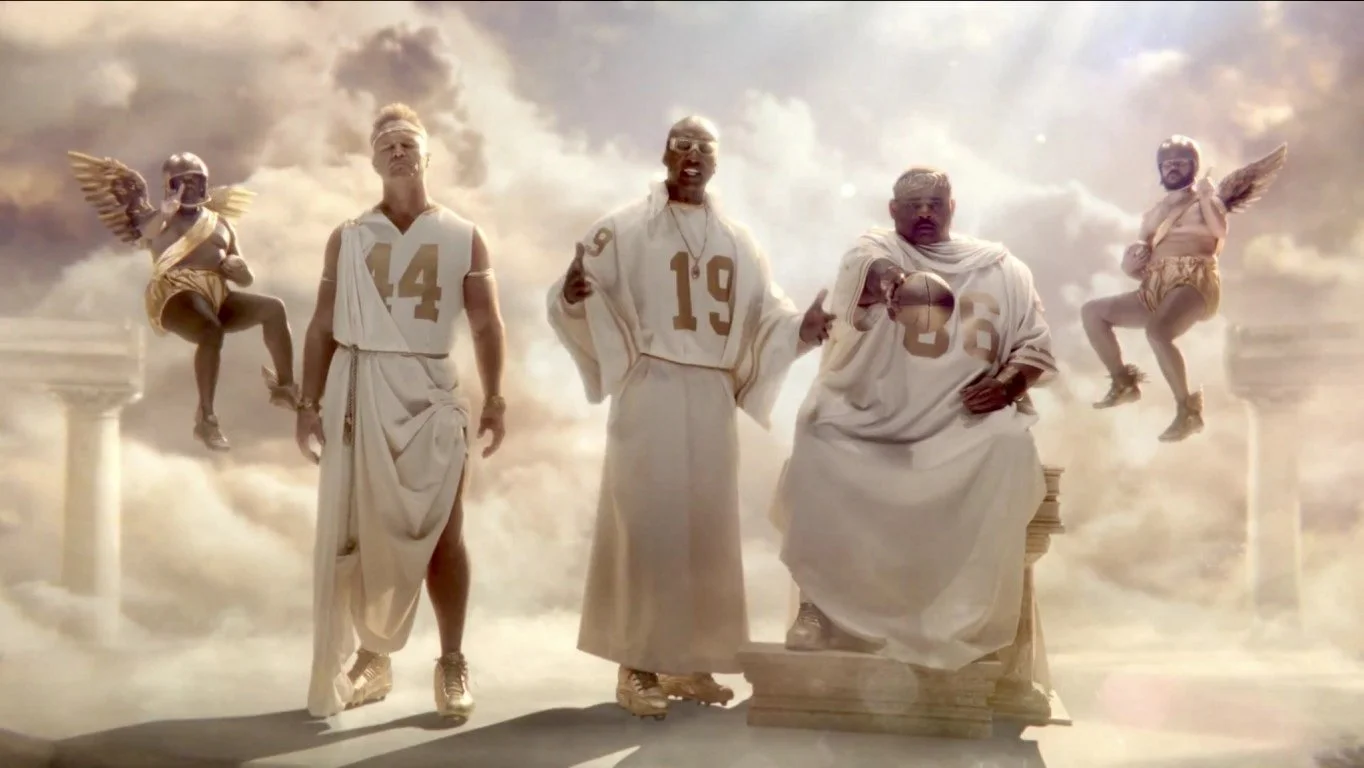Sports Idolatry-What Message are we Sending Our Children and Students?
/Guest Article by Mark Kennedy, CA
In the Summer of 2008, I attended the opening ceremonies for a new hockey arena named after my late father. The 1960s era “Teeder Kennedy Arena” was about to be replaced by a beautiful multi-purpose sports complex and I was there representing the Kennedy family. As a highlight of the dedicatory programme, the master of ceremonies walked cautiously to centre of the rink and solemnly poured a bottle of water on the ice. His voice boomed through the state-of-the-art PA system, “This is an offering to the hockey gods!”
Silence followed. Nobody laughed because he didn’t seem to be joking. Maybe no one was surprised or troubled by what he said, no one except me. That’s because his words highlighted the all-encompassing secularization of our society and the seeming worship of professional athletes, ice hockey players in this instance.
It made me think about the opening event for the old Teeder Kennedy Arena some 60 years previously. Back then a member of the local clergy would likely have offered a Christian prayer of thanks for the facilities and blessing for those who use it. That sort of thing wouldn’t be allowed today of course. In our functionally atheistic society, public references to the living God are cancelled or replaced with intonations about more comfortable pseudo-deities, like “The hockey gods” – players from the game’s early history.
I realize that we live in an age of hyperbole. For example, the word ‘excellent’ now substitutes for ‘good’ and the old superlative ‘awesome’ today means little more than ‘acceptable’, so a modern fast-food gourmand can unapologetically rave about an ‘excellent’ soda and an ‘awesome’ hamburger. It’s not completely surprising then that sports commentators and fans alike laud outstanding old -time players like Gordie Howe, Rocket Richard and my father- exalting them on high to a level of ‘idols’ or ‘gods’. But when skilled human athletes are deified, that raises a few disturbing implications. If a person truly believes these men are ‘gods’ or even demigods, wouldn’t that turn the act of watching them play into a kind of idolatrous worship, giving the game of hockey the air of a misguided religious cult?
Well, it might be that using those terms is just another example of silly modern overstatement. But what if there’s more to it? What if it mirrors a change in what or whom people truly worship today?
Seventeenth Century mathematician and Christian philosopher Blaise Pascal said that humans have a natural bent for worship: “There is a God-shaped vacuum in the heart of each man which cannot be satisfied by any created thing but only by God the Creator, made known through Jesus Christ.” Blaise Pascal, Les Pensées VII
Currently, it seems that millions are trying to shoehorn professional athletes into that “God-shaped vacuum”.
Even in the decades before Covid, North Americans were rapidly abandoning Christian observances. From 1988 to 2019 Canadian church attendance dropped 46% according to Stats Can and a similar pattern emerged in the U.S. In those same years, the number of children and young people playing hockey remained steady at 1.2 million, while the total number of hockey arenas increased by 15%. Sadly, Canadian pastors know that sports are far more important to many Christian families than church. Pastors often hear parents say something like, “My kids will be in Sunday school every Sunday morning, unless they’ve got a team practice!”
Reminds me of a line from the movie “Concussion” that succinctly captures our modern prioritization of sports over church: “The NFL owns a day of the week (Sunday). It’s the same day the churches used to own. Now it’s theirs (the NFL’s).”
And prioritization is the issue. People reveal the thing they truly love most – whom or what they actually worship -by how they prioritize the use of their free time and how they spend their discretionary financial resources. As Jesus said,
“… where your treasure is, there your heart will be also.” Matt 6:41
Concerning time, it’s not a matter of hours at the arena or sports field versus time in the pew. And for discretionary spending, the issue isn’t about where the most dollars go. The key issue is about a person’s most important decision-making influence. It seems to me that for believers, the scripture, “seek first the kingdom of God, and his righteousness;” (Matt6:33) ought to have a lot to do with it. In light of that, our current priorities about using our time and discretionary spending should make some people feel uncomfortable.
So might the warning: “I would advise no one to try living the Christian life unless he intends to seek God’s Kingdom first. He can expect a miserable existence if he seeks it second.” Anon
God’s goal for his people is freedom. As Paul says in Galatians 1:5, “it is for freedom that Christ has set you free.” The example of hockey heroes can be a positive influence but the veneration of hockey gods both distracts and detracts from our freedom in Christ. Famous athletes will never fill the God-shaped vacuum in human hearts.
This isn’t a matter of hair splitting about hyperbolic terms. Believers simply cannot take the words ‘gods’ and ‘idols’, or their implications lightly when the Bible clearly treats them as very serious matters. The concept of ‘heroes’ is not the problem and participation in athletics at any level can be very beneficial. But ‘idols’ of any kind are biblically anathema. And, from the Ten Commandments on, there are more than 100 verses that forbid the worship of false gods. After all, what could be more foolish than the cult-like adoration of hockey gods, many of whom are missing their front teeth!

